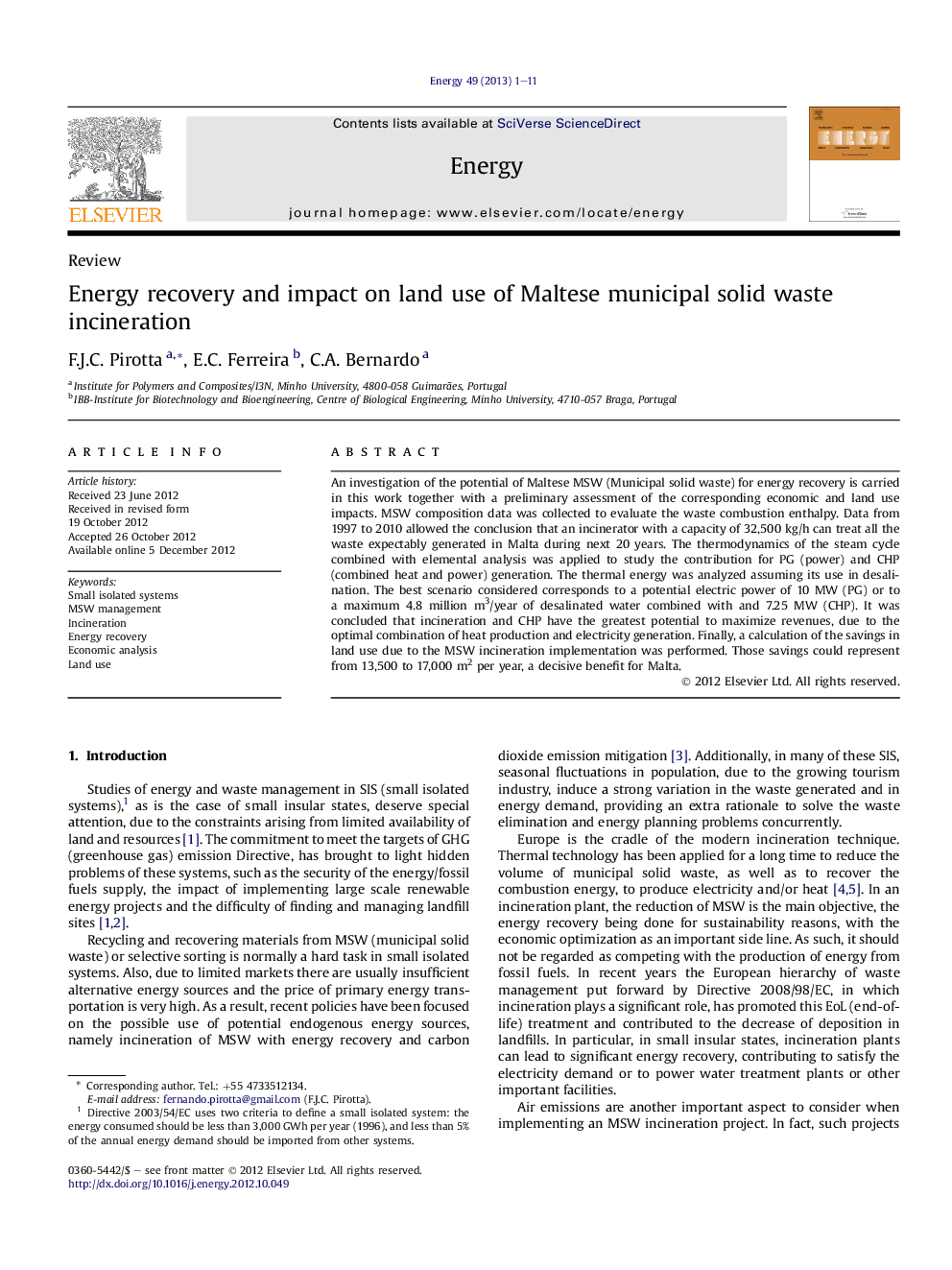| Article ID | Journal | Published Year | Pages | File Type |
|---|---|---|---|---|
| 1733265 | Energy | 2013 | 11 Pages |
An investigation of the potential of Maltese MSW (Municipal solid waste) for energy recovery is carried in this work together with a preliminary assessment of the corresponding economic and land use impacts. MSW composition data was collected to evaluate the waste combustion enthalpy. Data from 1997 to 2010 allowed the conclusion that an incinerator with a capacity of 32,500 kg/h can treat all the waste expectably generated in Malta during next 20 years. The thermodynamics of the steam cycle combined with elemental analysis was applied to study the contribution for PG (power) and CHP (combined heat and power) generation. The thermal energy was analyzed assuming its use in desalination. The best scenario considered corresponds to a potential electric power of 10 MW (PG) or to a maximum 4.8 million m3/year of desalinated water combined with and 7.25 MW (CHP). It was concluded that incineration and CHP have the greatest potential to maximize revenues, due to the optimal combination of heat production and electricity generation. Finally, a calculation of the savings in land use due to the MSW incineration implementation was performed. Those savings could represent from 13,500 to 17,000 m2 per year, a decisive benefit for Malta.
